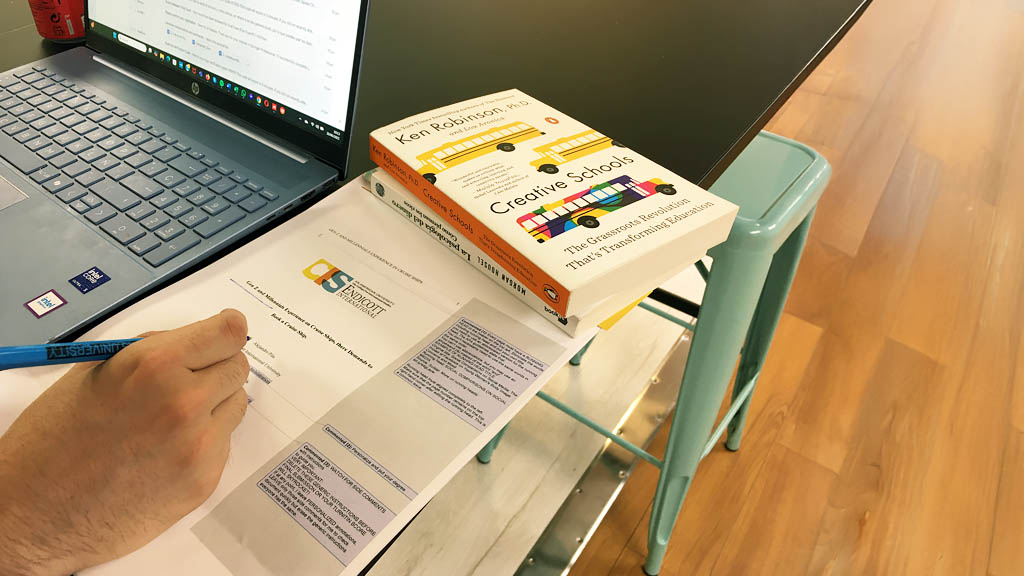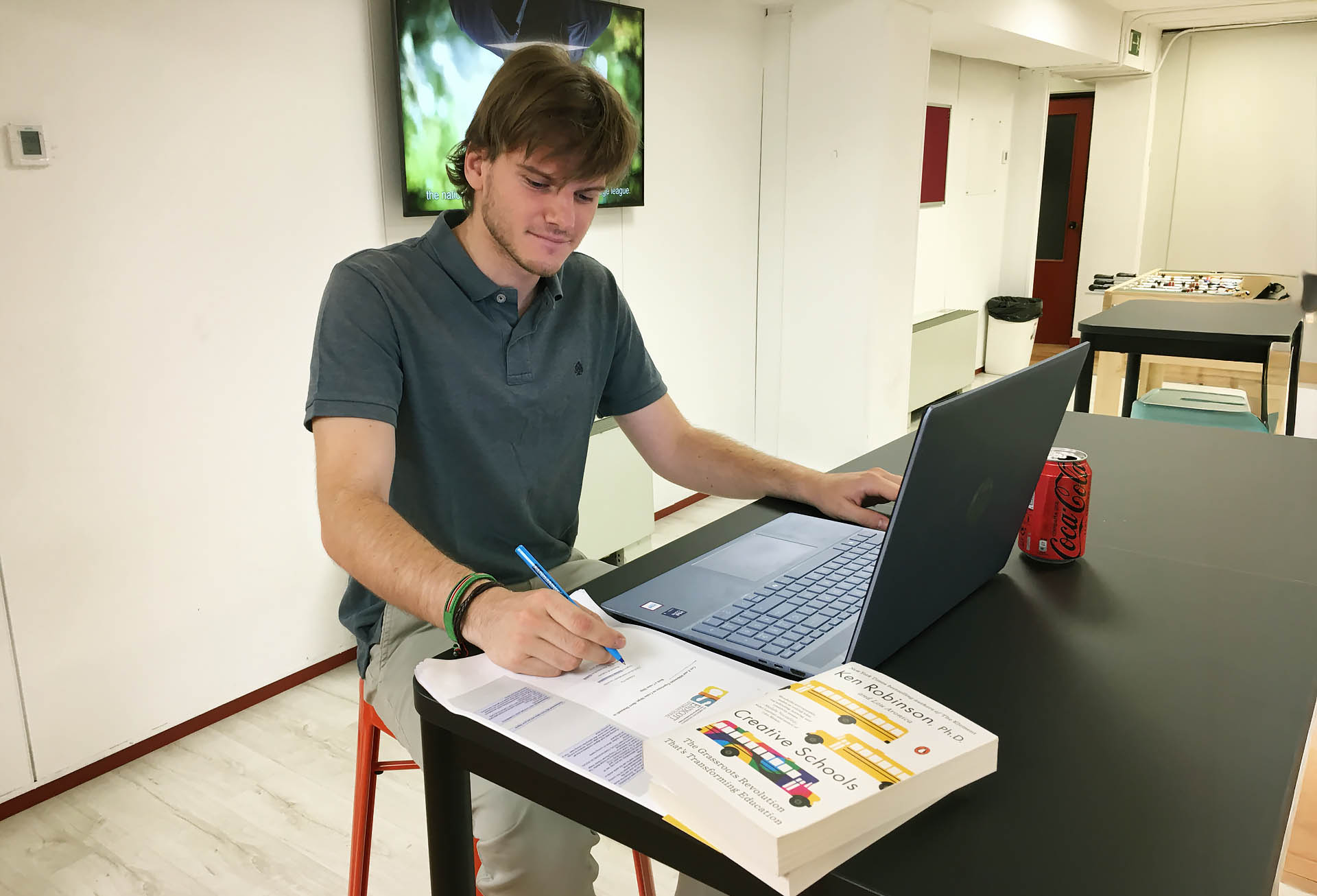Managing university coursework is already demanding. Now, add a part-time job, an internship, or even freelance work to the mix, and things can quickly become overwhelming.
If you’re trying to figure out how to balance work and study without burning out, you’re not alone.
More and more students are taking on extra responsibilities while studying, either to support themselves financially or to gain professional experience early on.
At CIS University, we believe academic success and personal growth should go hand in hand. So here’s a practical guide to help you manage both worlds—while keeping your health, focus, and energy intact.
Why Balancing Work and Study Can Be a Challenge
Working while studying can offermany benefits, including financial independence, hands-on experience, and a stronger resume. But it also comes with challenges that shouldn’t be underestimated.
- Time Pressure and Energy Drain
Balancing classes, assignments, shifts at work, and personal obligations can leave you feeling like there aren’t enough hours in the day. Without a clear strategy, it’s easy to fall behind or feel mentally exhausted.
This pressure often leads to students sacrificing rest, meals, or social time, believing they can “catch up later.” The problem is that “later” rarely comes.
- The Risk of Sacrificing Academic Performance
Even the most motivated students can see their grades drop when work hours increase. Procrastination creeps in, deadlines pile up, and attention in class fades.
Without the right tools, juggling both can feel like constantly choosing one priority over another.
- Mental Health and the Importance of Setting Boundaries
Burnout is realand quite common. Long-term stress affects not only your academic output, but also your emotional well-being and sense of self-worth.
That’s why it’s essential to set realistic limits, recognize warning signs, and ask for support when needed. Whether you’re adjusting to new routines or managing long-standing commitments, your well-being must be part of the equation.
- Smart Strategies to Manage Your Time Efficiently
The good news? With a bit of planning, you can regain control of your time and energy—and even feel more in charge of your life as a student.
- Planning Your Week with Realistic Goals
Start every week with a clear view of your academic and work commitments. Instead of a to-do list that never ends, define three to five key priorities and match them to specific time slots.
This approach helps reduce overwhelm and makes your goals feel more achievable.
- Time-Blocking and Priority Setting
Time-blocking means assigning a fixed slot to each task and protecting that time. This could include study sessions, job shifts, meal breaks, or even rest.
Learn to distinguish between urgent and important tasks. If you’re not sure how to start prioritizing, you might find value in practical time management strategies for college students that can help you stay focused and avoid burnout.
- Using Digital Tools to Stay Organized
Digital planners, AI-assisted calendars, and notification systems can help you track tasks and prevent last-minute stress.
Apps like Notion, Todoist, or Google Calendar allow you to set goals, deadlines, and reminders across all areas of your life. They’re particularly helpful when your schedule changes from week to week.
Study Techniques for Busy Students
When time is limited, studying smart matters more than studying long. Choosing the right methods can help you retain information without spending endless hours in front of your books.
- Focused Sessions vs. Long Study Marathons
Instead of pushing through long, unproductive hours, divide your study time into short, focused intervals. A technique like the Pomodoro Method (25 minutes of study, 5-minute break) helps sustain attention and keeps fatigue at bay.
Even if you only have a couple of hours per day, working in focused sprints can help you stay consistent without draining your mental energy.
- Leveraging Active Recall and Spaced Repetition
These two techniques are backed by cognitive science and are especially effective for students with tight schedules.
Active recall means testing yourself repeatedly instead of re-reading notes. Spaced repetition involves reviewing content at increasing intervals to improve long-term retention.
Together, these techniques maximize what you learn in less time.
- How to Maximize Study Time on Short Breaks
Use micro-moments in your day—like commuting, waiting in line, or short lunch breaks—to review flashcards, listen to audio summaries, or jot down ideas.
How to Stay Healthy While Balancing Work and Study
Academic success means little if it comes at the cost of your health. Energy, focus, and emotional resilience all depend on how well you take care of your body and mind.
- Nutrition, Sleep, and Stress Management
Skipping meals or sleeping only a few hours a night will catch up with you. Prioritize regular sleep, simple but nourishing meals, and at least 15 minutes a day for movement or mindfulness.
Simple routines like planning your meals, keeping a consistent bedtime, or disconnecting from screens before sleep can make a huge difference.
- Creating a Sustainable Daily Routine
A sustainable routine doesn’t mean following a strict schedule—it means creating habits that you can actually keep.
Start by anchoring your day around fixed times for waking, meals, and breaks. Build your study and work blocks around these anchors. This helps reduce decision fatigue and builds a sense of rhythm.
- When (and How) to Take Proper Breaks
Breaks are not a luxury, they’re a necessity. Without them, your brain stops processing information effectively.
The key is taking intentional breaks: step away from screens, go for a walk, do something physical, or simply rest your eyes.
And if you’re also working on personal finances alongside your studies, small adjustments like setting limits on caffeine or meal planning can go hand in hand with smart student budgeting tips.
Why CIS University Helps You Succeed at Both

At CIS University, we understand that students are more than just learners—they’re individuals with goals, responsibilities, and evolving schedules.
That’s why we offer support systems designed for balance.
Flexible Academic Support and Mentoring
From class schedules adapted to your needs to one-on-one mentoring, our programs are built to work around real life. You’ll never feel like your professional development is in conflict with your academic path.
Career Guidance and Internship Coordination
Our team supports you in finding internships or jobs that align with your studies, so you don’t have to compromise one for the other. With over 300 internship partnerships, we help you gain practical experience without derailing your degree.
A Student-Centered Approach to Personal Development
Whether you’re pursuing athletics, creative projects, or part-time work, we believe your academic journey should grow with you. That’s why we offer workshops, coaching, and ongoing support for students in diverse situations—including those navigating academic life as student-athletes or career starters.
And if you’re also looking to sharpen your academic strategies, you’ll find guidance on how to improve your academic performance as a student-athlete in our insights for high-performance learners.
Balancing work and study isn’t about doing everything perfectly—it’s about knowing your priorities, protecting your time, and creating space for both ambition and rest.
